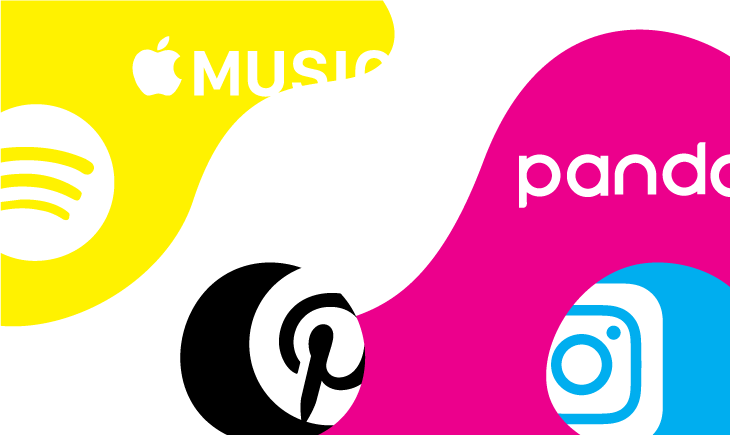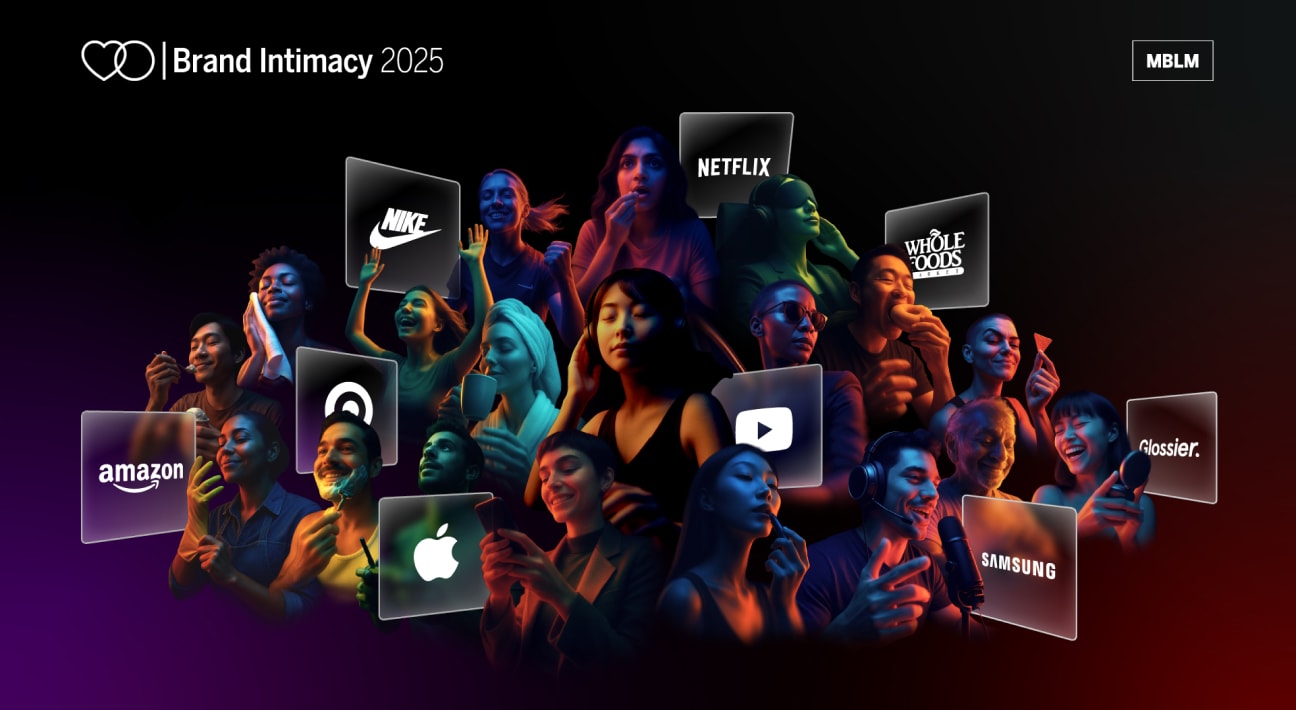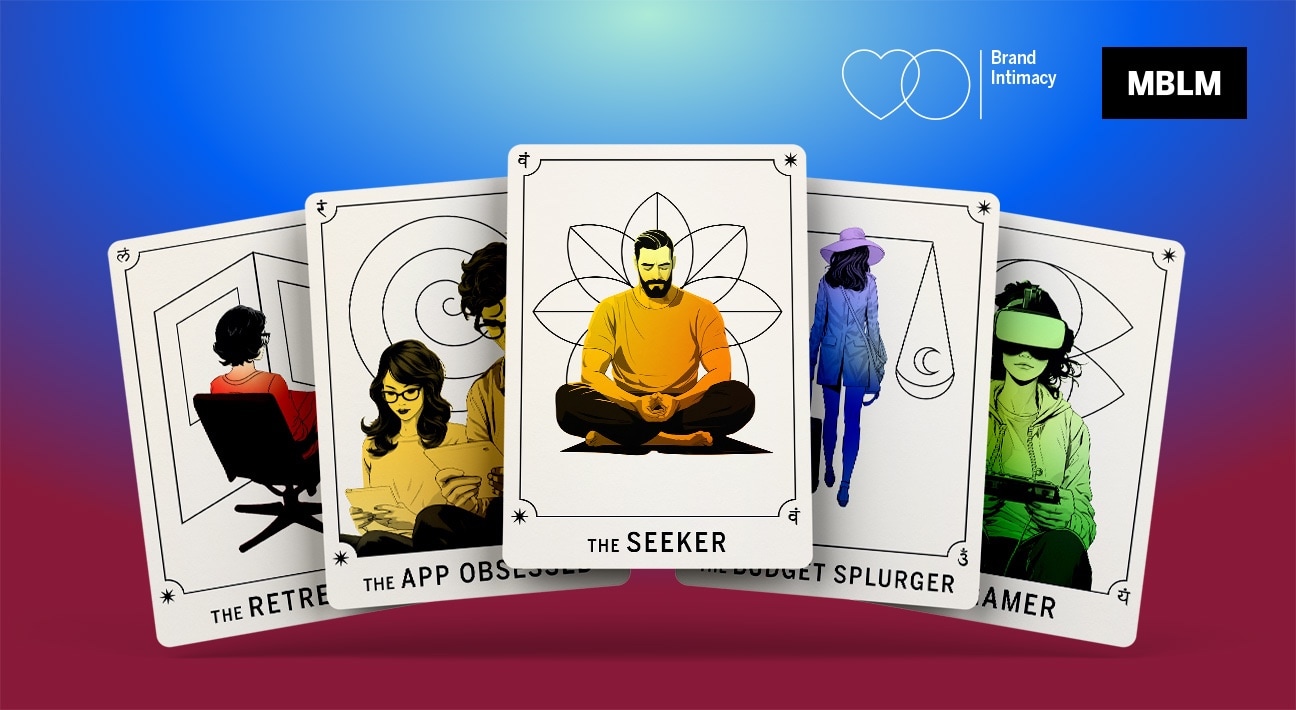Apps & Social Platforms Climbed Two Spots but Remained in the Bottom Third of All Industries Analyzed in MBLM’s Brand Intimacy 2019 Study

The apps & social platforms industry ranked 10th out of the 15 studied in MBLM’s Brand Intimacy 2019 Study, which is the largest study of brands based on emotions, rising two spots since 2018. Pinterest topped the industry, followed by Spotify and Pandora. The remaining brands in the Top 10 for the apps & social platforms industry were: Instagram, Apple Music, Facebook, Snapchat, Uber, Airbnb and Venmo. Brand Intimacy is defined as the emotional science that measures the bonds we form with the brands we use and love.
Top intimate brand outperformed the top brands in the Fortune 500 and S&P indices in both revenue and profit over the past 10 years, according to the Brand Intimacy 2019 Study. The average revenue growth from 2008-2017 was 8.68 percent for the top 10 most intimate brands, compared to 3.66 percent for Fortune 500 top brands and 4.75 percent for top S&P companies. In dollar value, this translates on average to the top 10 intimate brands having $37 billion more in total revenue over a 10-year period compared to the Fortune 500. This has significant implications for apps & social media brands, many of whom have volatile profitability and growth histories, including Spotify, which turned a profit for the first time in Q1 2019 and Facebook, which lost $100 billion in value last year.[1]
“Although a ubiquitous part of our daily routine, apps & social platform brands continued to underperform in our 2019 study,” stated Mario Natarelli, managing partner, MBLM. “These brands are perceived as free utilities. They rank lowest in the smartphone ecosystem and now trust is emerging as a key challenge as these brands try to mature. However, strong performers such as Pinterest are creating powerful bonds – especially with women.”
Other significant apps & social platforms industry findings include:
- The category increased its average Brand Intimacy Quotient from 18.0 in last year’s study to 25.4 in 2019
- Pinterest doubled its score of 22.0 in 2018 to 44.9 this year
- Last year’s leader, Apple Music, fell to the #5 position
- Pinterest was the #1 brand for women
- Spotify was the #1 brand for men
- Pinterest was also the #1 brand for millennials, users over 35, users with incomes under $75,000, and those with higher incomes
MBLM also published an article decoding the success of Pinterest, “Pin It to Win It.” The piece analyzes Pinterest’s swift rise from the fourth spot in the apps & social platforms industry in MBLM’s 2018 study to the top spot this year. The brand is loved by women and is starting to see increased interest from men, who made up 50 percent of new sign-ups in 2018. Pinterest also builds deeper connections than any other social media brand and inspires some of the strongest associations in the category and in the overall study. Consumers’ feelings about brands in the industry can change quickly since there are few barriers to adoption, switching or abandonment. Brands like Pinterest have a unique advantage since they already have created strong emotional attachments with consumers.
The Brand Intimacy 2019 Study contains the most comprehensive rankings of brands based on emotion, analyzing the responses of 6,200 consumers and 56,000 brand evaluations across 15 industries in the U.S., Mexico and UAE. MBLM’s reports and Data Dashboard, which features a brand ranking tool, showcase the performance of almost 400 brands, revealing the characteristics and intensity of the consumer bonds.
To view apps & social platforms industry findings, please click here. To download the full Brand Intimacy 2019 Study or explore the Data Dashboard click here.
Methodology
During 2018, MBLM with Praxis Research Partners conducted an online quantitative survey among 6,200 consumers in the U.S. (3,000), Mexico (2,000), and the United Arab Emirates (1,200). Participants were respondents who were screened for age (18 to 64 years of age) and annual household income ($35,000 or more) in the U.S. and socioeconomic levels in Mexico and the UAE (A, B and C socioeconomic levels). Quotas were established to ensure that the sample mirrored census data for age, gender, income/socioeconomic level, and region. The survey was designed primarily to understand the extent to which consumers have relationships with brands and the strength of those relationships from fairly detached to highly intimate. It is important to note that this research provides more than a mere ranking of brand performance and was specifically designed to provide prescriptive guidance to marketers. We modeled data from over 6,200 interviews and approximately 56,000 brand evaluations to quantify the mechanisms that drive intimacy. Through factor analysis, structural equation modeling, and other sophisticated analytic techniques, the research allows marketers to better understand which levers need to be pulled to build intimacy between their brand and consumers. Thus, marketers will understand not only where their brand falls in the hierarchy of performance but also how to strengthen performance in the future.
To read a more detailed description of MBLM’s approach, visit its Methodology page.
[1] https://globalnews.ca/news/4108493/facebook-money-problems/

